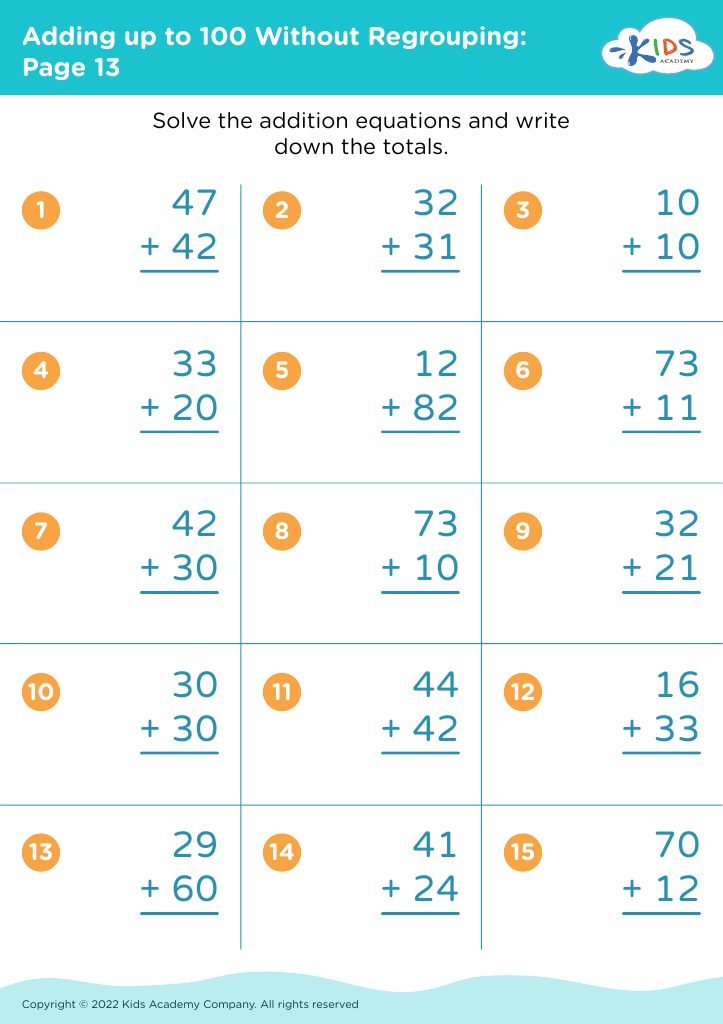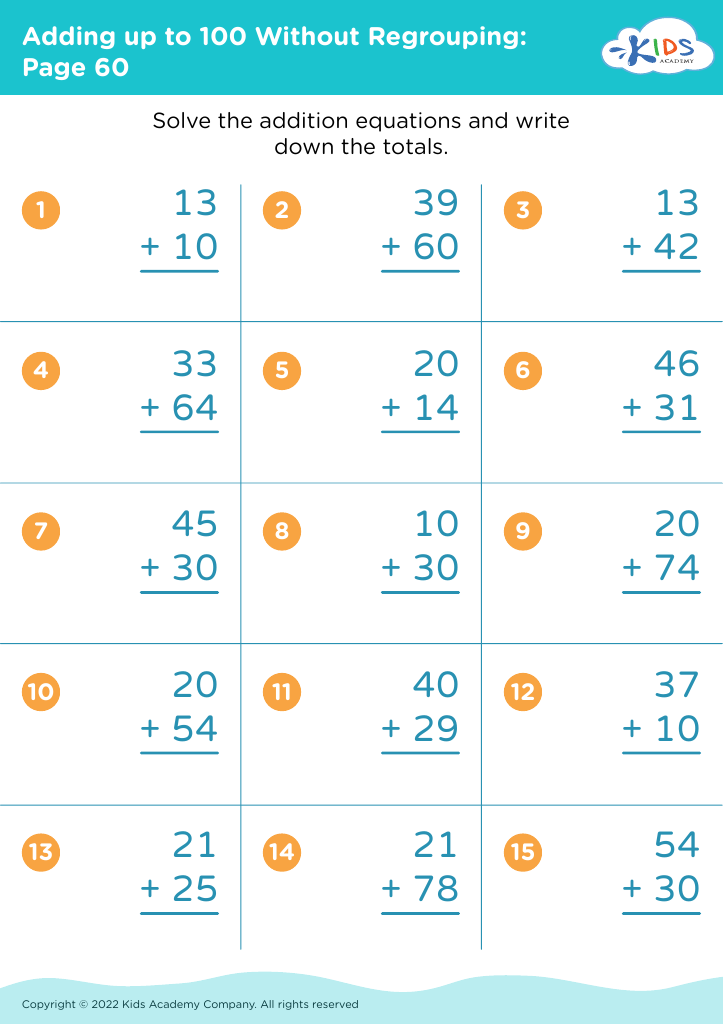Improve reading skills Adding up to 100 Worksheets for Ages 5-7
5 filtered results
-
From - To
Enhance your child's reading proficiency with our specially designed "Adding up to 100 Worksheets for Ages 5-7." For young learners, merging math exercises with reading practice offers a dual benefit. Each worksheet introduces basic addition while incorporating engaging word problems, fostering both comprehension and numerical skills. These colorful, interactive sheets are perfect for developing critical thinking and boosting confidence in both subjects. Ideal for children in the primary grades, these printables provide a solid foundation for future academic success. Visit our site to access these comprehensive resources and watch your child thrive in a fun and educational environment!
Parents and teachers should prioritize improving reading skills and basic arithmetic, such as adding up to 100, for children aged 5-7 because these foundational abilities are crucial for later academic achievement and lifelong learning. During these formative years, a child's brain is exceptionally receptive to acquiring new skills, making it an ideal time to develop essential literacy and numeracy.
Strong reading skills lay the groundwork for effective communication, critical thinking, and comprehension across all subjects. Kids who read proficiently at an early age are more likely to perform well in school, fostering greater self-confidence and a positive attitude towards learning. Conversely, struggling readers may experience frustration, which can lead to disengagement and long-term academic difficulties.
Similarly, basic arithmetic skills, such as addition, are foundational to more advanced mathematical concepts. Learning to add up to 100 teaches children to recognize number patterns, enhances cognitive development, and builds the mental discipline needed for problem-solving. Mastering these skills early can make future topics in mathematics, like multiplication and division, more accessible and can nurture a genuine interest in the subject.
In summary, focusing on improving reading and basic arithmetic for young children sets them on a path to academic success, instills confidence, and equips them with critical life skills necessary for a bright future.







%20(1).jpg)











